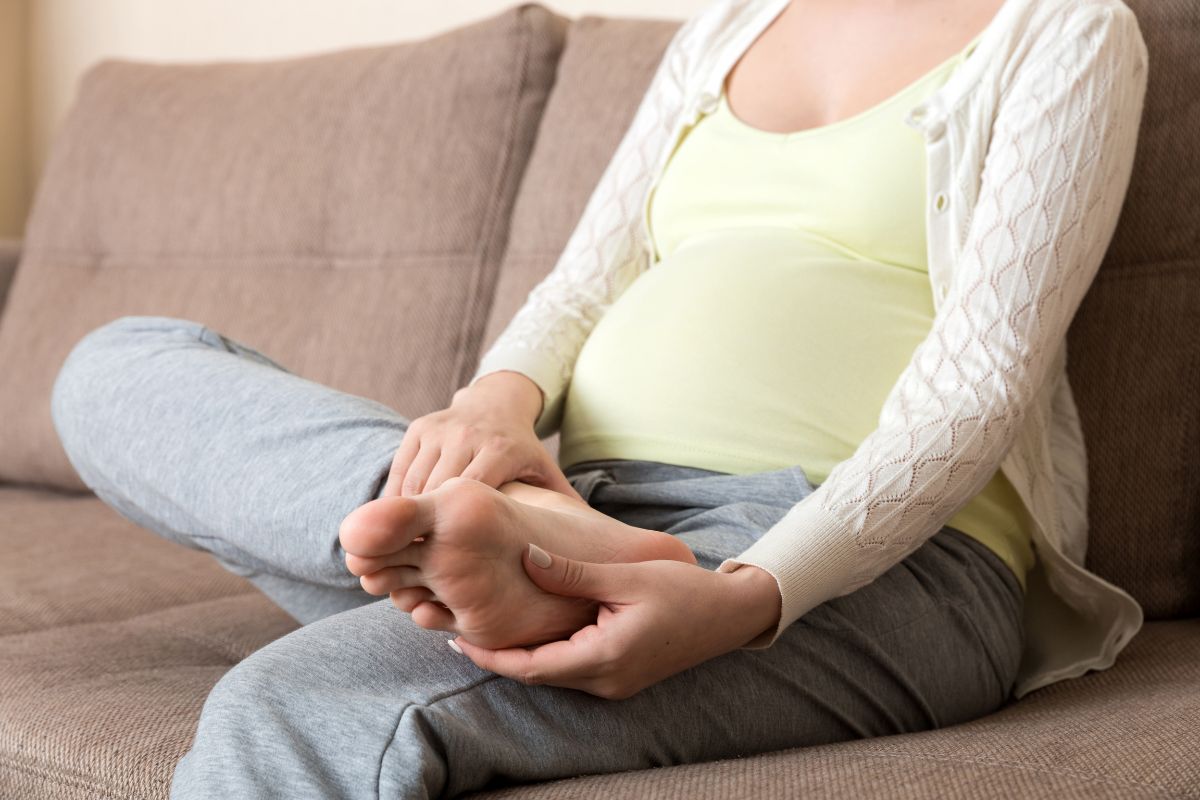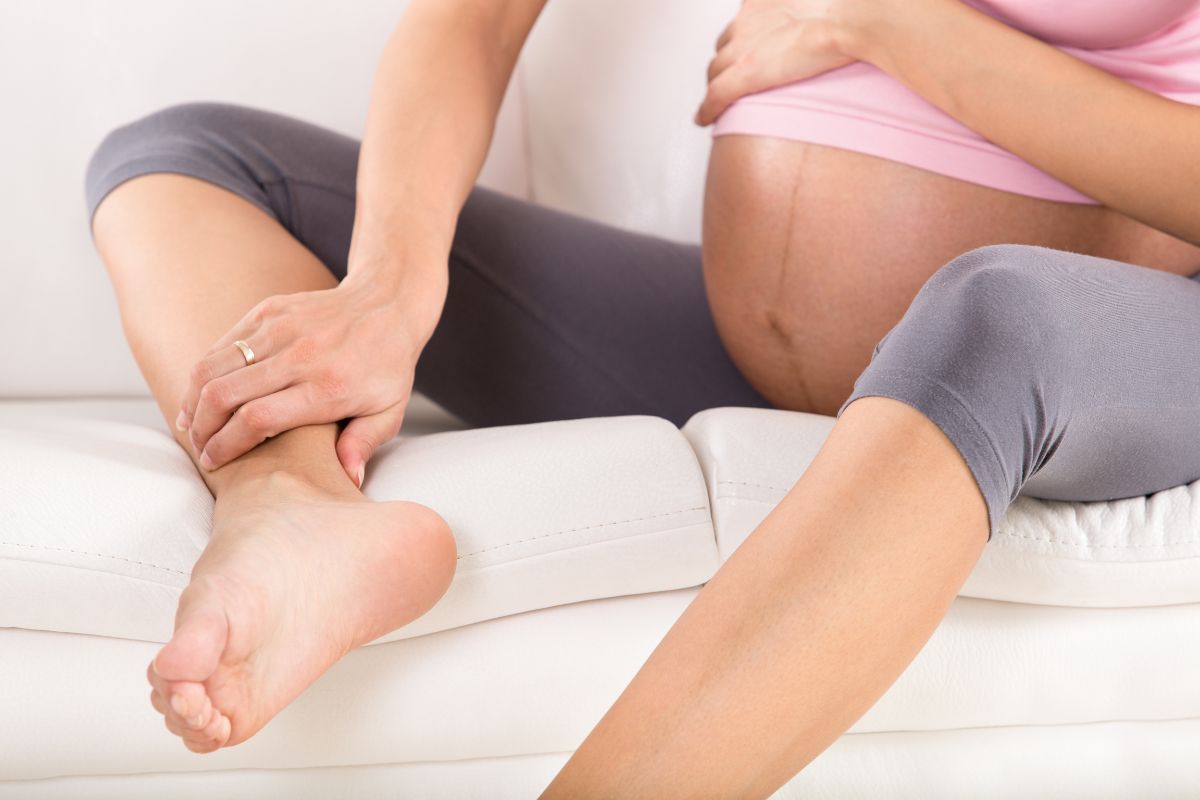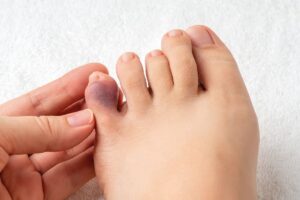Many women experience swollen feet during their pregnancy. Otherwise known as edema, this can cause discomfort and even foot pain throughout their journey. This is often caused by a number of factors.
Although swollen feet are considered quite normal during pregnancy, they can hamper daily activities and make walking more challenging. If you’re struggling with swollen feet, here are some reasons why and how you could manage this during pregnancy.

Why Your Feet Swell During Pregnancy
- Hormonal Changes
Your body goes through a lot during pregnancy and that’s because your hormones change to prepare for the coming of the baby. For one, you can witness a drastic increase in progesterone and estrogen levels, as well as relaxin.
These hormones play a role in loosening and relaxing your muscles in order to allow your body to stretch and accommodate the baby. This can likewise make veins in the legs much wider and less efficient in returning blood to the heart, most of which can lead to swelling.
Water retention and general fluid buildup can likewise contribute to this condition. This is because you’re holding more water and making space for the baby.
- Increased Volume of Blood
Pregnant women tend to produce more blood during their journey to support their baby. This can also lead to fluid and water buildup in the tissues, leading to swelling.
- Standing or Sitting for Longer Periods
Pregnant women are also prone to getting extra water or fluid buildup in their feet and legs, but this can be exacerbated by sitting or standing for long periods of time. Hot weather can likewise make your feet more swollen.
Reduce Your Swollen Feet with These Tips
Wear Proper Shoes
One way you can help reduce or even avoid swelling and foot pain is by wearing comfortable shoes and socks. Since your feet may be getting bigger due to water retention and fluid buildup, as well as the presence of more blood, you’ll want to consider looking for new shoes that give your feet extra room.
A shoe that’s a half size or even a whole size bigger can do a world of good. This can give your feet extra legroom and enough space for blood circulation to happen. Steer clear of tight straps or rigid material that can pinch your feet.
Some recommend good old cushioned tennis shoes that have a larger toe box. The extra cushioning can also alleviate some foot pain and discomfort you’re feeling.
Use Compression Stockings
Compression socks are typically used for long flights, but you can definitely add some compression stockings during your pregnancy. These socks act as a means to prevent uncomfortable swelling in your feet and ankles with the gentle pressure and compression they provide.
Stay Active
Don’t forget to take breaks throughout the day, especially when you notice you’ve been sitting or standing for far too long. This will give your feet and legs the reprieve it needs as it reduces the chances of fluid pooling in your feet. Before you go on walks or undergo exercises, however, be sure to consult with your healthcare provider.
Massage and Put Your Feet Up
Doing a series of leg and foot exercises can stimulate blood circulation and, by extension, reduce swelling. Some gentle exercises you can do include leg stretches as well as ankle rotations.

In relation to this, you might want to elevate your feet as well. You can use pillows to prop up your feet above the heart level when you’re sleeping or resting so that it can reduce swelling.
The Bottom Line
Swollen feet are a normal occurrence during pregnancy. By understanding what causes foot pain and swelling during this time, you can better employ the strategies provided in managing your condition. If the pain becomes unbearable, don’t hesitate to call a foot doctor or a healthcare provider right away.





